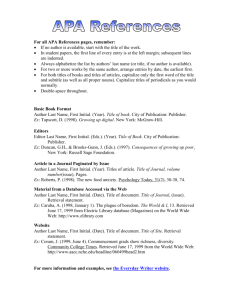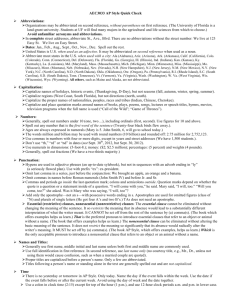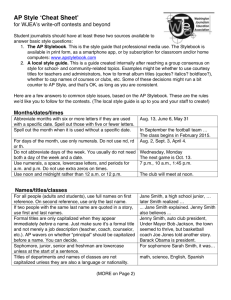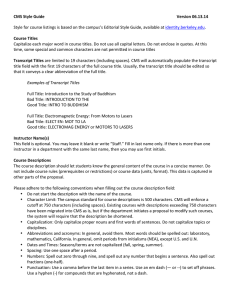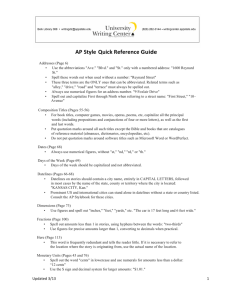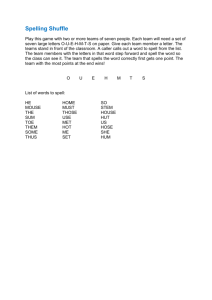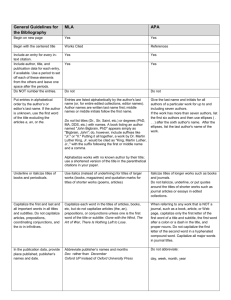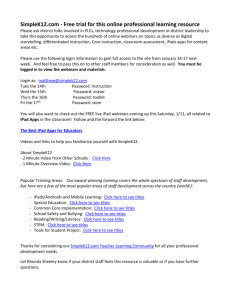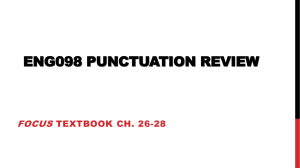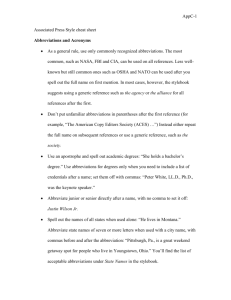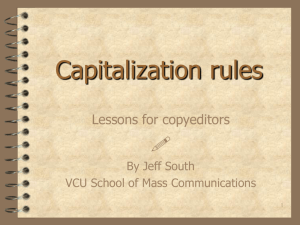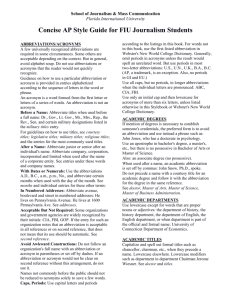Style Guide Checklist - UW Departments Web Server
advertisement
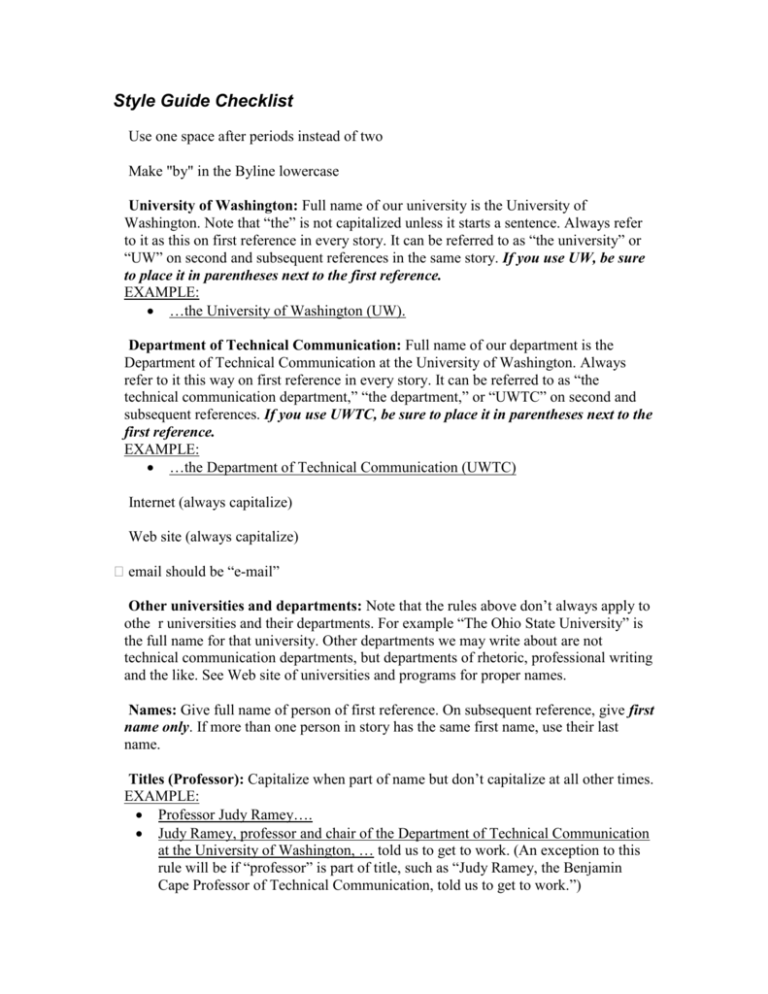
Style Guide Checklist Use one space after periods instead of two Make "by" in the Byline lowercase University of Washington: Full name of our university is the University of Washington. Note that “the” is not capitalized unless it starts a sentence. Always refer to it as this on first reference in every story. It can be referred to as “the university” or “UW” on second and subsequent references in the same story. If you use UW, be sure to place it in parentheses next to the first reference. EXAMPLE: …the University of Washington (UW). Department of Technical Communication: Full name of our department is the Department of Technical Communication at the University of Washington. Always refer to it this way on first reference in every story. It can be referred to as “the technical communication department,” “the department,” or “UWTC” on second and subsequent references. If you use UWTC, be sure to place it in parentheses next to the first reference. EXAMPLE: …the Department of Technical Communication (UWTC) Internet (always capitalize) Web site (always capitalize) email should be “e-mail” Other universities and departments: Note that the rules above don’t always apply to othe r universities and their departments. For example “The Ohio State University” is the full name for that university. Other departments we may write about are not technical communication departments, but departments of rhetoric, professional writing and the like. See Web site of universities and programs for proper names. Names: Give full name of person of first reference. On subsequent reference, give first name only. If more than one person in story has the same first name, use their last name. Titles (Professor): Capitalize when part of name but don’t capitalize at all other times. EXAMPLE: Professor Judy Ramey…. Judy Ramey, professor and chair of the Department of Technical Communication at the University of Washington, … told us to get to work. (An exception to this rule will be if “professor” is part of title, such as “Judy Ramey, the Benjamin Cape Professor of Technical Communication, told us to get to work.”) Titles (PhD): While many of the people we will write about will have PhD degrees. Do not refer to them as Dr. unless they are a physician. Titles of works: Titles and subtitles of published books, pamphlets, proceedings and collections, periodicals, and newspapers and sections of newspapers are set in italics. EXAMPLES The New York Times Technical communication posTComm (?—should we italicize this—?) Titles of articles and features: In periodicals and newspapers, chapter titles and part titles, titles of short stories, essays, and individual sections in books are set in regular type and enclosed in quotation marks. EXAMPLE “The Influence of Semantics and Syntax on What Readers Remember” from Technical communication Dates (Months): Spell out whole month. EXAMPLES August (GOOD) Aug. (BAD) Dates (Exact dates): Put the date first, then the month and year. EXAMPLE 1 January 2000 was the day no one would ever forget Dates (Centuries and decades): Spell out (in lowercase letters) references to particular centuries. Decades may be either spelled out or expressed in numerals with apostrophes. EXAMPLES The twentieth century The ‘80s and ‘90s. Numbers: All numbers are spelled out from one to nine. From ten on, you can use digits. Numbers (fractions): Spell out all fractions less than one. EXAMPLE: four-fifths Numbers (Age): EXAMPLE: Age (5-year-old boy) Numbers (Using Numbers in Sentences): The beginning and ending numbers of the series may also be related by a pair of prepositions (from/to), than the dash is omitted. EXAMPLES: 167-72 (GOOD) from 167-72 (BAD) from 167 to 172 (GOOD) from 1898 to 1903 (GOOD) Percent: Do not spell “percent,” use %. Numbers (Starting sentences): If you have a sentence that starts with a date number that needs to be in numerals, try to rewrite it. EXAMPLES: Everyone remembered 1976 as the year it all began. (GOOD) 1976 is the year everyone remembered as the year it all began (BAD) At the University of Washington, the years 1960-69 were good. Acronyms: All caps (when necessary) and don’t use periods. EXAMPLES: PhD HTML STC Acronyms (Formal Names): These have periods. EXAMPLES: U.S. J.R.R. Tolkein Acronyms (Unfamiliar Names): If you want to use an acronym you believe the reader will not be familiar with, spell out first and have acronym next to the full wording in parentheses. EXAMPLES: Special Interest Group (SIG)
